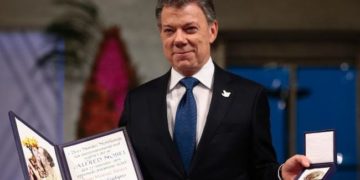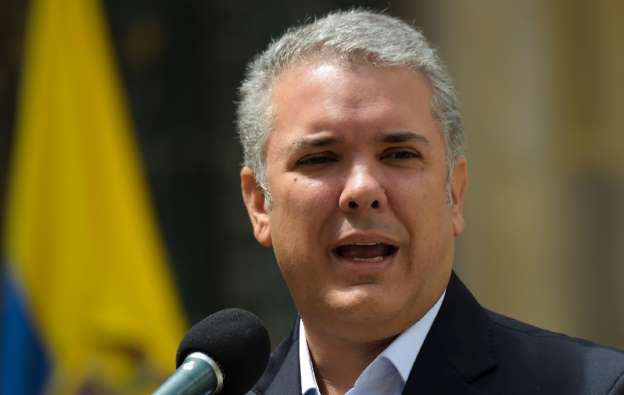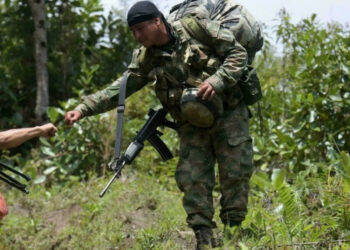The expression “adding fuel to the fire” is commonly used to describe a situation in which a particular action, often intended to solve an issue, worsens the original problem. The Colombian government recently announced that citizens would be allowed to obtain guns with the permission of local military commanders to defend themselves against crime and aggression. This serves as an illustration of how the faith placed in guns seems to override any understanding of the consequences of bringing weapons to the streets.

Since the signature of the 2016 peace agreement between the FARC-EP guerrilla and the Colombian government, former President Juan Manuel Santos’ government suspended the issuing of new firearm permits. This was the extension of a measure usually implemented around the Christmas holidays, where weapon possession is forbidden to prevent street fights and brawls – more frequent in the holiday season – from escalating into fatal incidents.
Reversing Previous Policies
President Ivan Duque replaced Santos in August. Duque came to power with the promise of “correcting” all the “wrong” actions of the previous government. However, the “wrong” actions of the previous government have not always been clearly identified, with the result that Duque’s changes have sought to correct failed policies, but also targeted policies that produced good results for the simple reason that they were implemented by the previous government. Such is the case with the policy prohibiting the bearing of weapons by civilians.
The impact of this policy was remarkable, producing the lowest homicide rate in the last four decades. The measure was not only the result of the restrictions brought by the government but was also conditioned by the 2016 peace agreement, the de-escalation of conflict with the FARC-EP, as well as the increase of the state forces capacity to police weapons possession. The declining war with the guerrilla movement allowed the state to allocate its resources to address other challenges.
https://www.youtube.com/watch?v=RRwj43i53-U
Whereas Duque’s government initially backtracked on its announcement that citizens would be allowed to obtain guns with local military commanders’ permission, there is no clarity whether this backtracking will stand, as the government has also declared that provisions will be made for issuing weapon permits via the Ministry of Defense. The government simultaneously states that permits will not be issued and that they will be issued by the Ministry of Defense.
Besides the contradictions of implementing two different policies at the same time, the change of policy ignores three elements that should be central in considering the possibility of allowing “civilians” the usage of weapons in Colombia.
Monopoly on Violence
Colombia has not yet achieved a monopoly on violence. The state does not control who has access to guns.
This means that guerrillas, drug lords, and international criminal organizations that are part of the country’s different conflicts could take advantage of this measure and gain access to additional sources of weaponry through presenting themselves as “civilians.” This has already happened in the past. In the mid-1990s, the government passed a law aimed at improving safety in rural areas that led to an increase of paramilitary death squads.
No Effective Institutions
Secondly, the policy assumes that institutions involved in issuing permits and dealing with civilian firearm ownership are working effectively. This assumption is misplaced, as institutions in Colombia operate in the midst of a war on drugs, with different armed groups contesting the state and exerting societal control.

The assumption also overlooks the fact that institutions in the past have played a partisan role in relation to armed actors. Using these same institutions to decide who will have access weapons does not seem wise. Procedures and regulations are as strong as the institutions implementing them.
In the past, when military commanders were tasked with regulating the permits for access to weaponry, corruption taking place in some military districts explained the growth of drug traffickers, gangs, and paramilitaries. This corruption also allowed for the legalization of weaponry bought on the black market.
State Should Provide Security
Finally, the new policy ignores the fact that providing security in a country is central to the state. Delegating this responsibility to individuals in the hope that they will provide security as a common good is more than wishful thinking.
Furthermore, it ignores the fact that when this measure was previously implemented (in the mid-1960s and mid-1990s), the capacity of the state diminished and weakened while armed contestants became stronger. Whereas privatization may be an option for some policies, it cannot be a replacement for statehood itself.
As President Duque moves forward to formalize this decision, he should remember the history of his country, its failed experiences with similar policies, and the capabilities of state institutions.
Duque should focus on building the state, not on outsourcing it. Instead of rescinding the responsibility to provide security for Colombian citizens to individuals, the government should consider improving the capacity of the police and the armed forces.
If the issuing of guns to civilians takes place, violence in Colombia will increase in the same way that flames of a fire will rise if you add fuel to it.
Disclaimer: The views and opinions expressed here are those of the author and do not necessarily reflect the editorial position of The Globe Post.




















